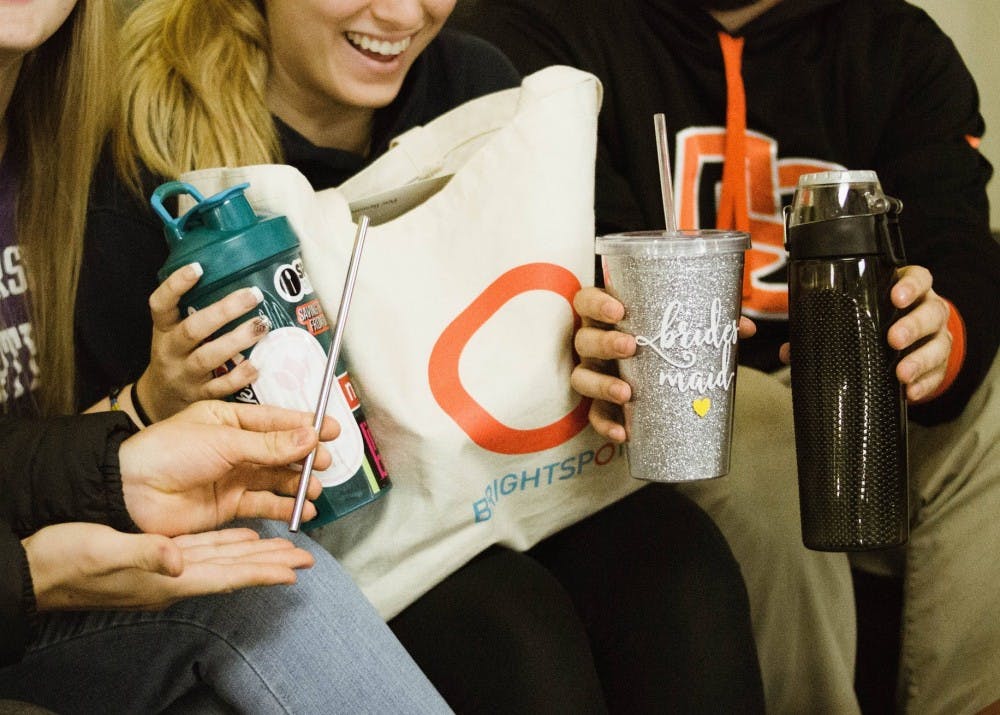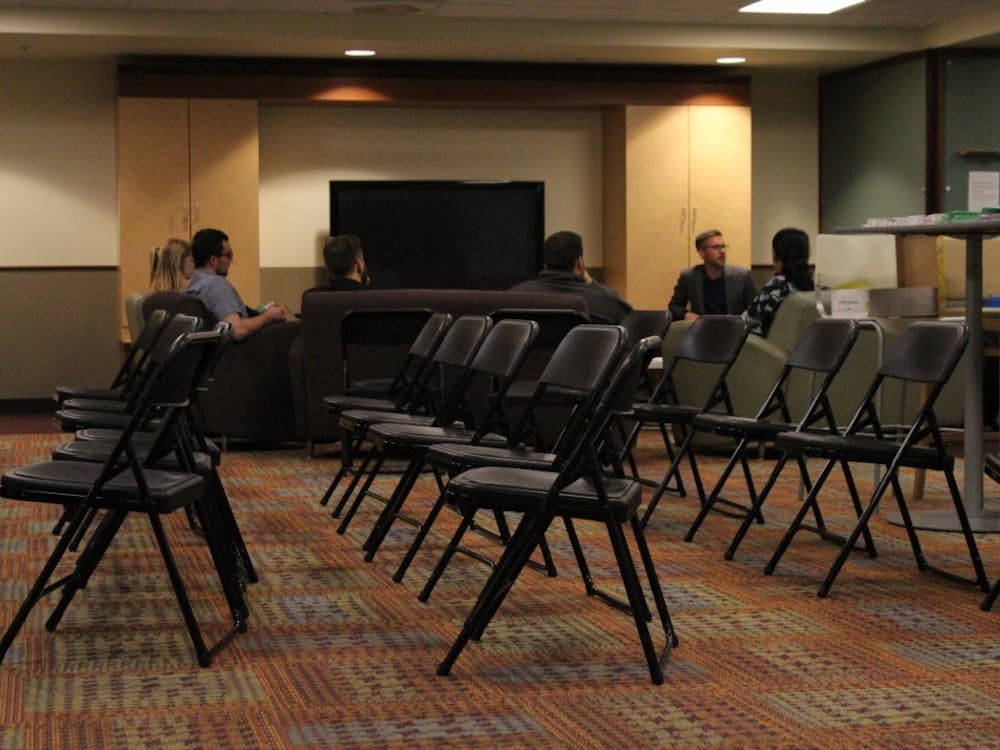You’ve probably heard someone say that to you. Maybe you yourself feel that way. But — in short — if not you, then who?
This editorial comes in light of the recent report from the IPCC regarding climate change. The report said that significant action must be taken in the next few years to lessen climate change contributors. If not, by 2030 there will be catastrophic effects to the planet. The Beacon urges students and the greater UP community to make some small changes that can add up to making a big difference on a matter we should all care about.
This report caused — rightfully so — stress for a lot of people but mainly it seems people want to know what they can do to help solve this problem.
One person might not be able to fix the problem. But when one person does something, that’s better than a lot of people doing nothing.
Here are ten ways you can do your part to help the environment:
1. Reduce the amount of meat you consume:
According to the Food and Agriculture Organization of the United Nations (FAO), livestock contributes an estimated 14.5 percent of all greenhouse gas emissions globally. Cows make up 65 percent of those emissions. So, next time you want a burger, think about subbing the beef patty for turkey, chicken or better yet, veggie.
2. Make your reusable water bottle a habit:
You should make carrying a reusable water bottle part of your routine. If you find that you forget it often, put it in your backpack before bed or set it next to your door so it's ready to go when you head out for the day. And it's much more fun to be able to spot your friends across campus by the water bottle they are carrying.
3. Keep reusable grocery bags on hand:
Whether you are going to Mack’s Market or Fred Meyer make sure to keep reusable totes handy. Not only do they help you avoid creating unnecessary waste but they are also much sturdier and you can keep them for a long time — nothing worse than walking back to your dorm/house with a bag full of Ben and Jerry’s, fair trade chocolate bars and avocados only to have the bag rip from the weight of the snacks or getting soggy when it rains. The planet and your sanity will thank you.
4. Lights off, curtains open:
Take advantage of the sun while it is out when you are home or in your dorm. Try to keep as many lights off as possible, keep curtains open to let natural light in instead. If you live in an off campus house, you should consider changing your light bulbs to energy efficient bulbs like LEDs for those times you really just need a little more light. Your utilities bill will be lower and so will your emissions.
5. Shop local as much as you can:
Shopping local not only supports businesses that add value to the community, it also cuts down the transportation it takes to get the good to the consumer.
Planes emit carbon dioxide, a greenhouse gas that warms the planet. If you are ordering a product from overseas that says it will be there in two-days, you can almost guarantee a plane will be involved. This goes for everything from vegetables to clothes. Certain items can be more expensive to buy locally, but sometimes buying produce at the farmers market can be even cheaper than at the grocery store and higher quality, too. Another option is splitting a produce box with your housemates to get your local produce at a lower price.
6. Buy for quality not for quantity:
Who wouldn’t love a buy-two-get-three-free deal on jeans or sweaters? This convenience and low price comes with a big fat environmental price tag. Fast fashion companies have suspicious, even unethical labor practices, and crazy amounts of water consumption. According to United Nations Economic Commission for Europe, the fashion industry makes up 20 percent of global wastewater as well as 10 percent of all global carbon emissions.
When you are getting tired of your wardrobe or looking for a new piece to add, check consignment and second-hand shops (Portland has no shortage of options). If you want to buy something new, research the company and pick one with ethical and sustainable practices.
7. Use the Eco-tainers & bring your own:
The eco-tainer program at UP is great — if we use it. Make sure if you are planning on ordering your food to go, you do so with a reusable container (preferably a glass or metal one). The same goes for your coffee or tea. Bring a reusable mug to cut down on waste. And about straws — keep a metal one in your bag for the times when you want an iced coffee on-the-go. Metal straws can be purchased at The Commons.
8. Trade beep beep for the bike lane:
Not only will you save money on gas if you bike (or heely — let’s bring it back) instead of drive but you will also reduce your emissions. Get in the routine of biking to the store or to places nearby. It's a great light workout too. As for driving to school, you really shouldn’t drive to campus unless you absolutely need to. Plus you don’t have to worry about parking.
9. Cool it on the laundry:
Want to take better care of your clothes and the planet? Start washing your loads in cold or cool water. This eco-friendly practice will help your clothes stay in good condition longer, lower the chance of colors bleeding, and help prevent set-in stains and shrinkage. About 90 percent of the energy used to do laundry comes from heating the water. If you eliminate that step, you can reduce your carbon dioxide emissions by a huge margin and save money on utilities. Make sure that you only do laundry when you have enough clothes for a full load (or share one with a friend) and try to use a more eco-friendly detergent.
10. You might be broke but you can donate your time:
The tenth item in this list is donating your time to environmental efforts whether that is joining UP’s ecology club or FixitUP, volunteering with Friends of Trees or participating in trash clean-ups at the river or the coast. You can visit the Moreau Center to learn about more environmental organizations that need your help.
Are you up for the challenge?
It can seem overwhelming to change all of these things all at once. Maybe to you it seems impossible. Change starts with a choice, pick one thing you want to work on, and create that habit and build from there. Baby steps. It's up to all of us to do our part for the planet.
The Editorial Board understands that it is difficult to know what is the right thing to do when it comes to the environment, and we are far from perfect. Each member of the board took the ecological footprint test and were shocked by the results. Our eight-person editorial board averaged four planets needed per person. The number represents how many planets it would take to sustain the entire population if everyone on earth lived the way we did. You can calculate your ecological footprint here.
We have work to do and we are sure you do, too.









